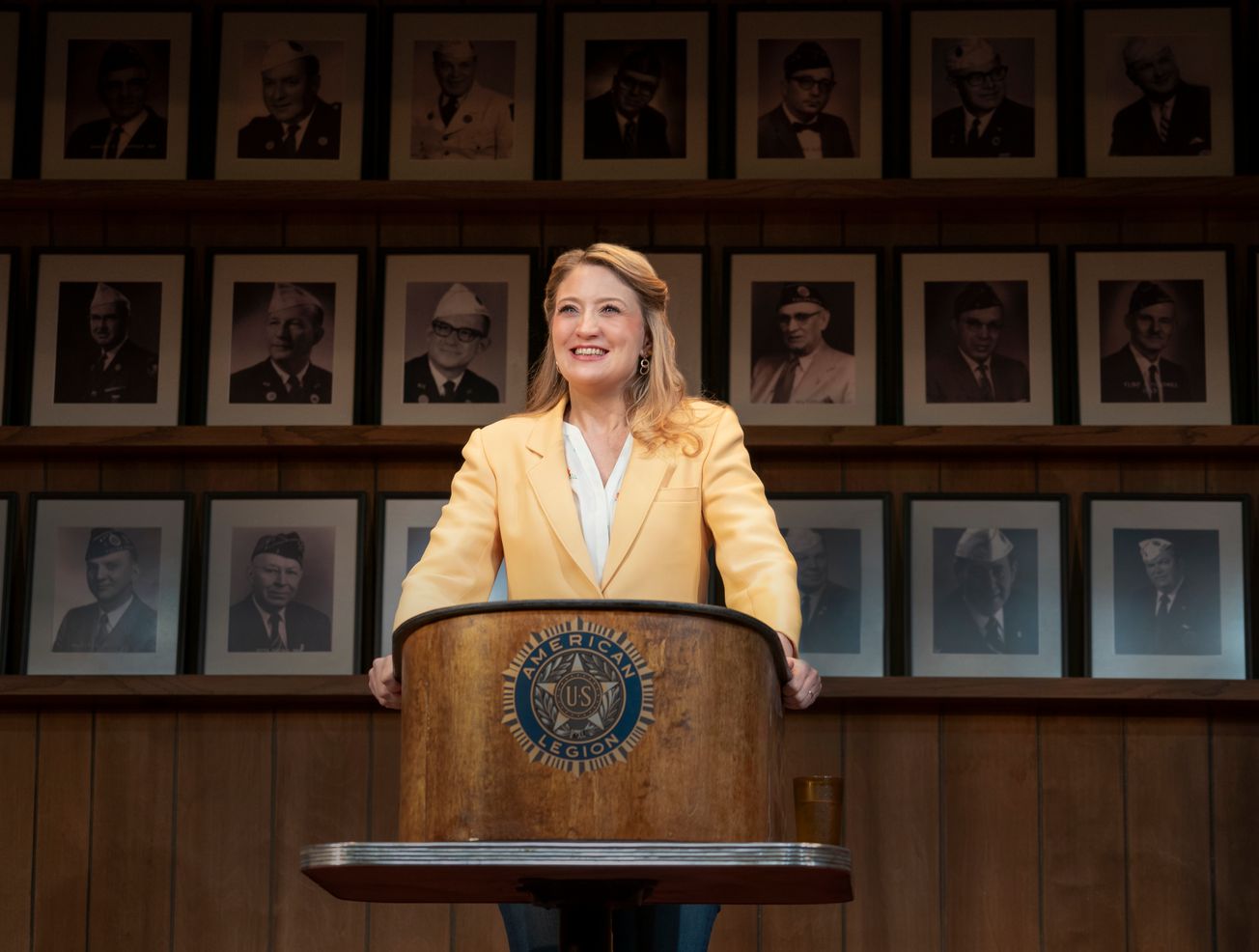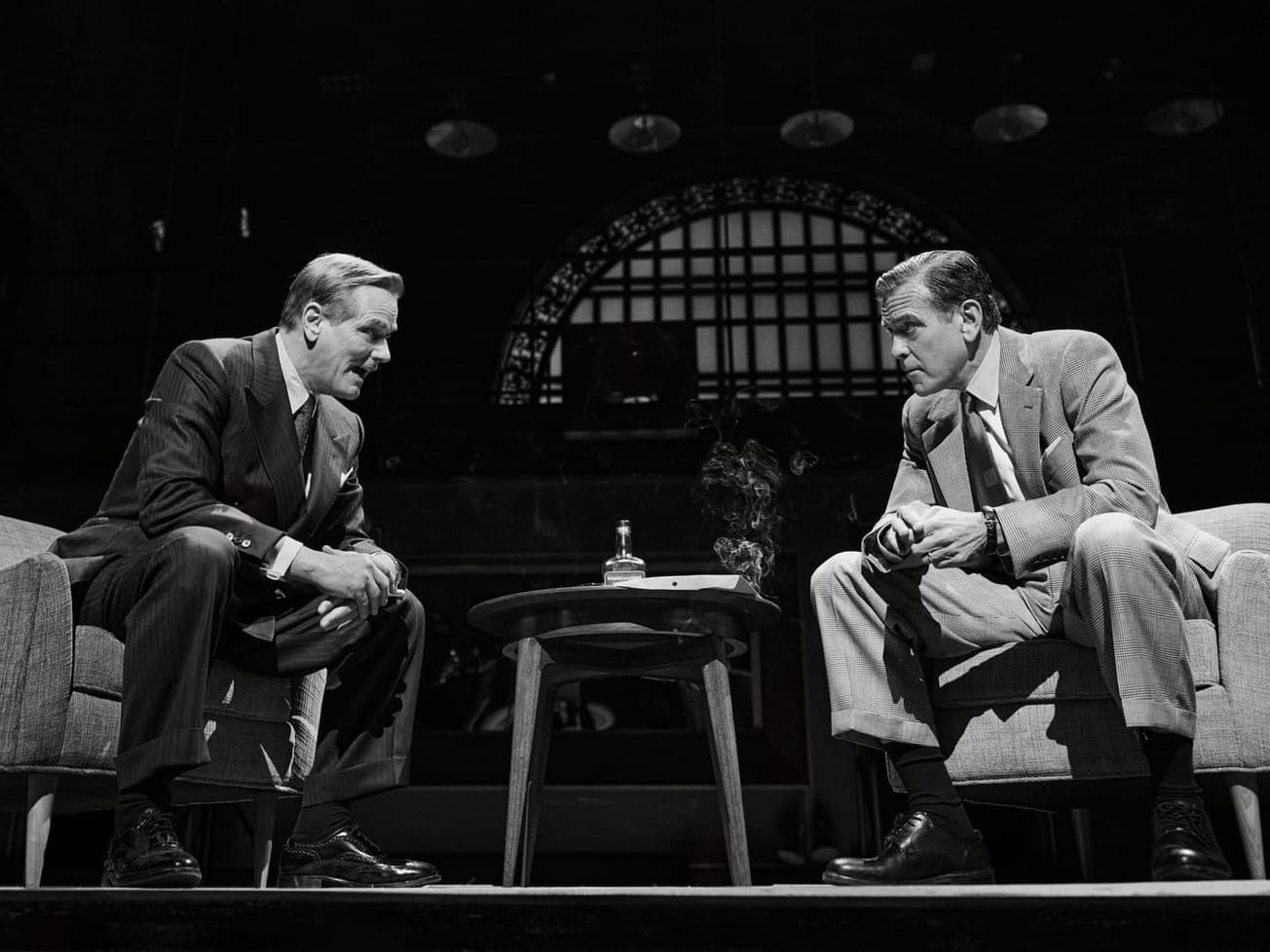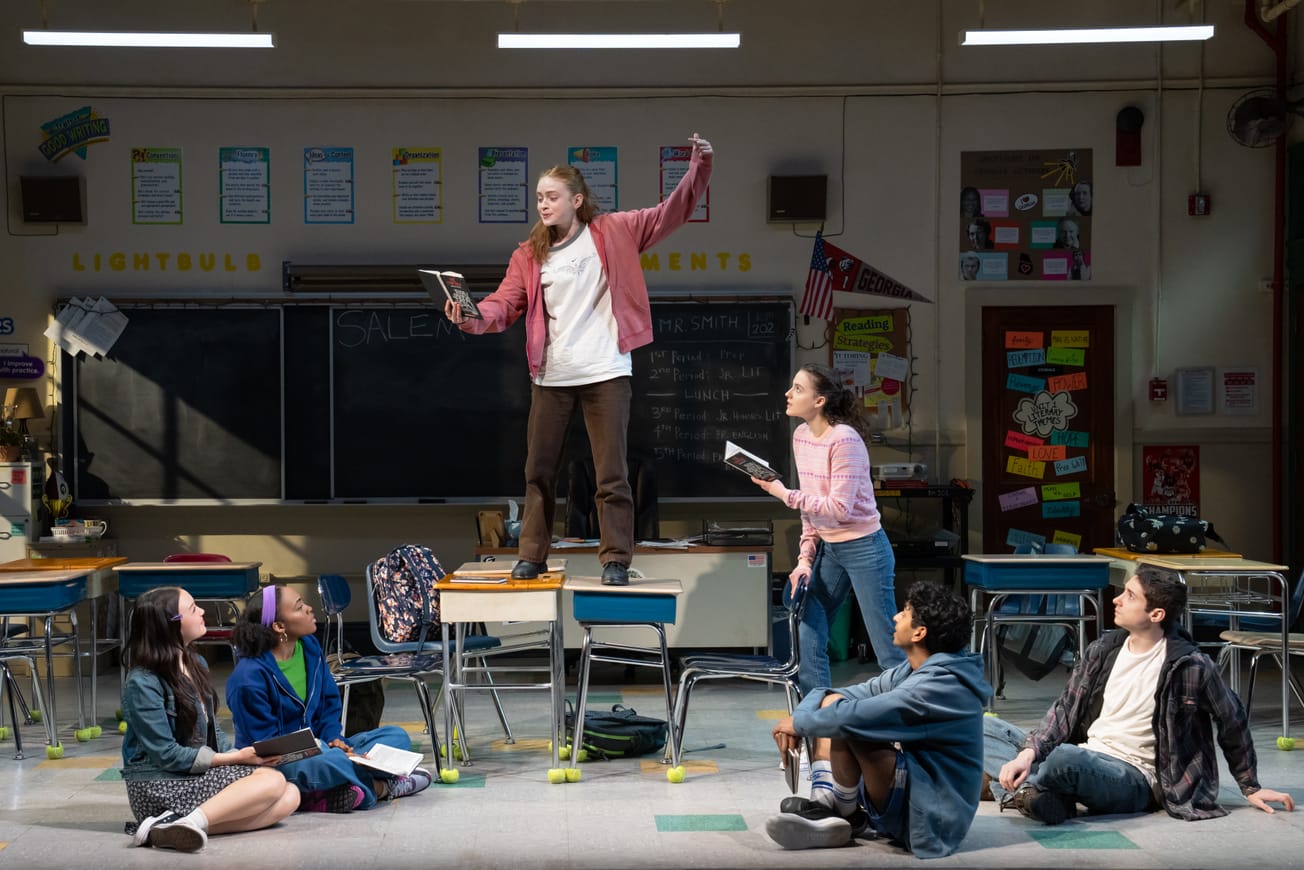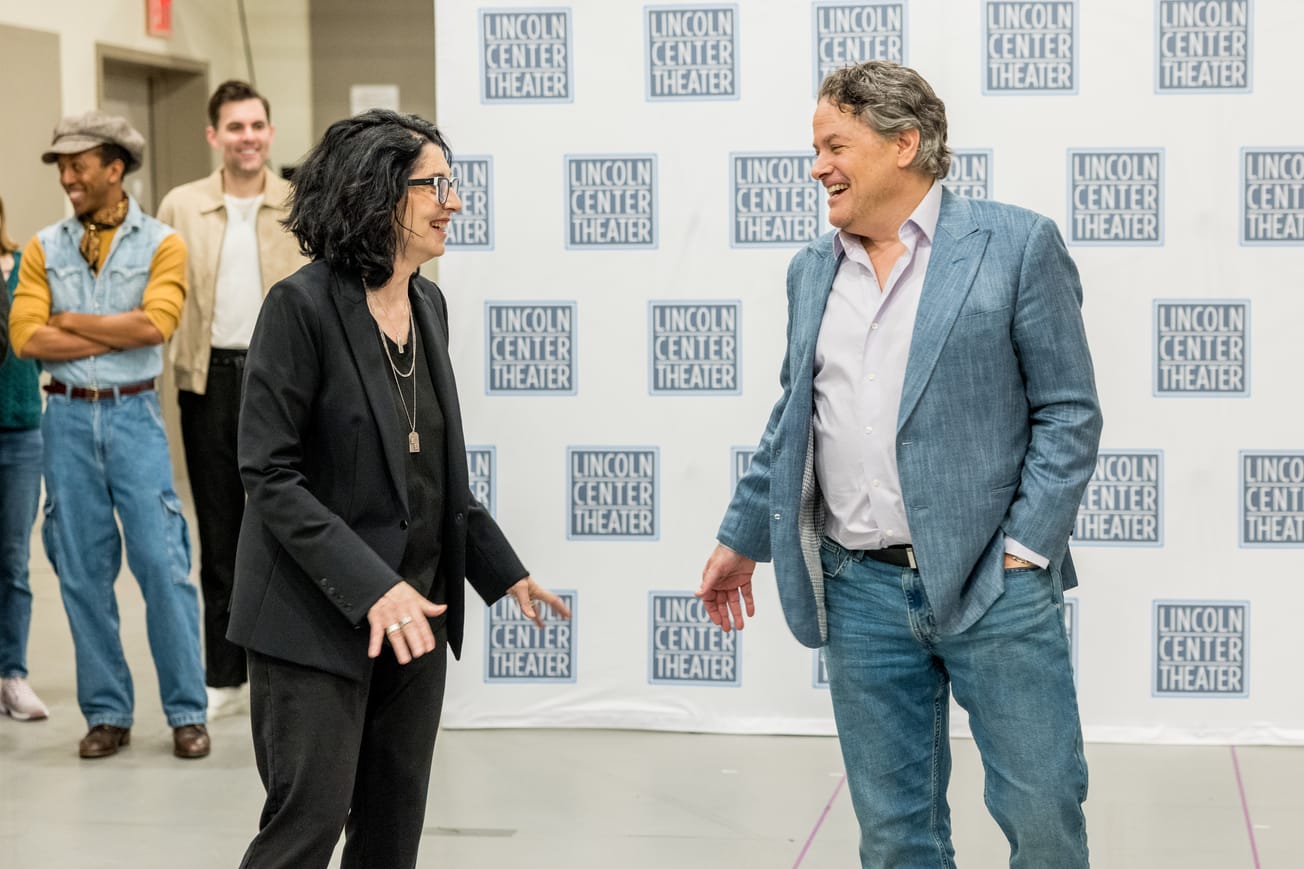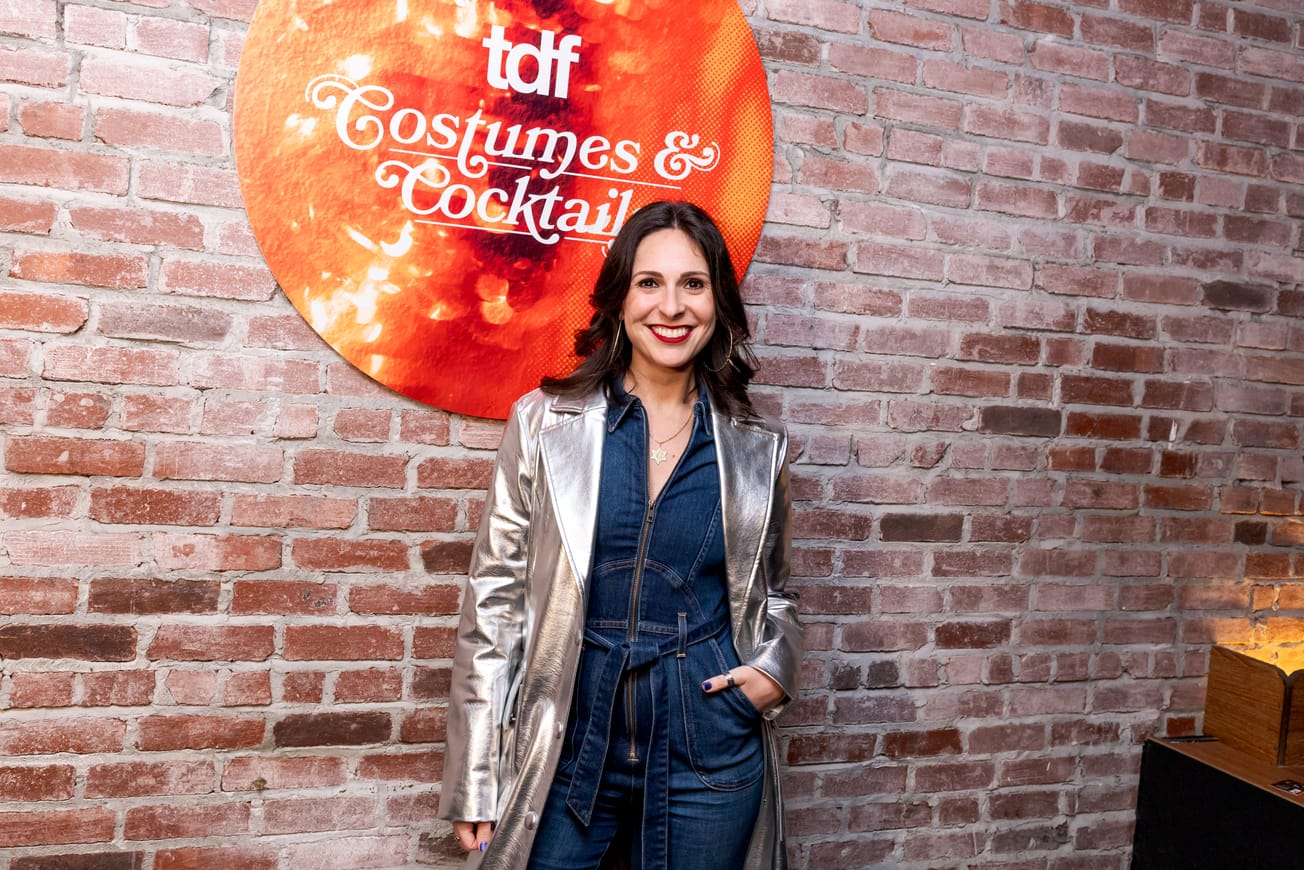The critically-acclaimed Broadway run of “What the Constitution Means to Me” ended Saturday evening. But as its creator and star Heidi Schreck sees it, the play’s journey is only just beginning.
During its Broadway run, “What the Constitution Mean to Me” was nominated for two Tony Awards, including Best Play, and was named a Pulitzer Prize finalist. In addition to critical accolades, the play proved a popular hit, welcoming a slew of celebrity attendees and recouping its original investment.
After taking a short vacation, Schreck will resume her role in September for the show’s brief engagement at the Kennedy Center. Then she plans to return to her other vocation, television writing — she’s developing a television series based on Patricia Lockwood’s memoir “Priestdaddy” — but will remain involved with the next iterations of the play. She plans to closely oversee the rehearsals for the play’s national tour, in which another actor will star, and to work on a film adaptation of “Constitution.”
Schreck spoke with Broadway News a day after the show’s final Broadway performance about what to make of its six-month run at the Hayes Theater and what comes next.
Edited excerpts:
Broadway News: Who was the most memorable guest to come to the show?
Schreck: Hands down RBG [Ruth Bader Ginsburg]. She was the guest that meant the most to all of us.
It was so exciting to be performing this for her, and it was also scary. I found out she was coming two hours before the show, and I went back through and fact-checked everything and looked up a couple of things about the due process clause. And then she very kindly sent a beautiful letter about the play, asked for a copy of the script, which I sent to her, and then sent me two small notes. She had a suggestion for changing a piece of language to make it more legally accurate. I was like ‘These are excellent notes. And if I’m going to take unsolicited notes from anyone, it will be RBG.’
BN: How did real-world politics influence the show throughout the run?
Schreck: The play provided a space to think about what was going on politically in our country in a larger historical context and to think about how what’s going on now isn’t an anomaly. The things that are happening right now, in terms of inequality and racism and the treatment of bodies that aren’t white and male, have been going on from the very beginning. It gave a way to really think through all of that, night after night, and also have a space to have feelings about that; to grieve, to get angry about it, to try to imagine a different way forward and try to imagine what a more humane version of our country might look like, while acknowledging that it was never humane.
BN: Did you film the production at the Helen Hayes Theater?
Schreck: Yes. We are planning to make a film out of it. We’re working with an amazing production company and an amazing director. We want to find a way to translate it to film that honors the structure of the play, honors the storytelling of the play. So it won’t just be a straight-up live capture of the performance. So we filmed it at Hayes. We’re going to film in a couple of other spaces later, tiny spaces, and we’ll have some days on set, doing a very intimate version.
BN: You’re on the other side of the Tony Awards now. What was that experience like for you?
Schreck: The days leading up to it had been such a frenzy that I didn’t quite have a speech prepared. So even though I would have loved for ‘Constitution’ to win, there was a second when they announced ‘The Ferryman’ where I took a relieved breath that I didn’t have to go up and improvise a speech.
But just the fact that we were there at all felt improbable and thrilling. The fact that the play went to Broadway felt improbable and thrilling, and, when I agreed to go to Broadway, I really went with tempered expectations. I thought the show might close after a week.
BN: Instead, the show achieved the rare feat of recouping. What did that mean to you?
Schreck: That was fuckin’ great. It demonstrated that a play like this, with a woman at the center, a woman telling stories about the women in her life, could actually recoup on Broadway. It’s exciting that people are clamoring for these kinds of stories and for clear-eyed stories about our country and are willing to pay money to see that on Broadway. Also I felt really grateful to all the people who invested in the show. I felt really excited for them that their gamble paid off.
BN: Have you already starting the casting and rewrite process for the national tour?
Schreck: We basically know who it’s going to be. I’m so excited about this person. It’s someone I’ve known for a long time and worked with, and I can’t wait to see what the next manifestation of the play will be. The play will be personalized for that person and they will get to share some of how their own life relates to the Constitution.
The play was always conceived of as a living, growing, evolving thing, much like the Constitution, and the last thing I would want is for it to become a dead thing that can’t change. And so this is a way to keep it alive, to keep it moving forward, to keep it opening up.
BN: Before Broadway, your play had runs at Clubbed Thumb, Berkeley Rep and then New York Theatre Workshop. What pushed you to make this play commercial in the first place?
Schreck: I eventually would have brought the play to a theater, but it was such a personal piece for me and such a scary piece for me that I don’t think I would have done it in 2017 if Maria Striar [founder and producing artistic director of Clubbed Thumb] hadn’t encouraged me, and, frankly, if she hadn’t told me it was an important time to do the play. Without her, I think I would have kept procrastinating.
BN: What do you think about the recent trend of downtown theater, like your piece, as well as shows such as ‘Slave Play’ and ‘Gary’ moving to Broadway?
Schreck: I think it’s thrilling. It gives me hope. Audiences are hungry for new forms and new structures and thinking about the world and our country in more radical ways. I think it’s maybe related to the instability in our country right now, that people want to imagine new ways of doing things and new and more truthful ways of thinking about our country. And I feel like with the work of people like Jeremy O’Harris, Jackie Sibblies Drury and Antoinette Nwandu, there’s this group of young artists, and primarily artists of color, really leading us forward in terms of having a reckoning with the true origins of our country and also doing the work of imagining something different.


















































